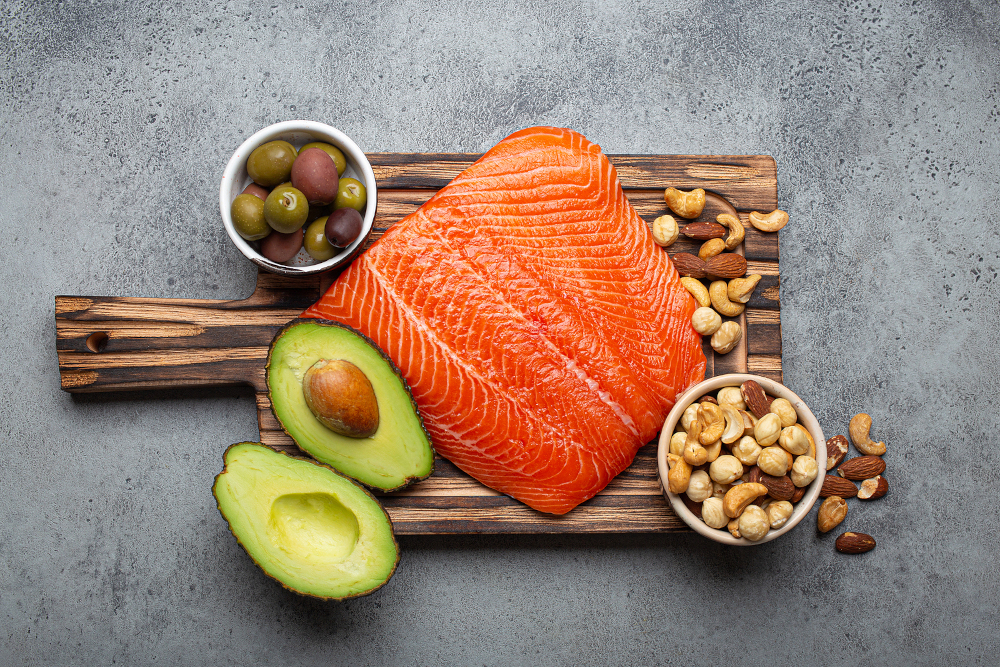Once upon a time, the concept of health and wellness was thought to be related solely to physical health, with nutrition and fitness seen as being the cornerstones to becoming the best possible version of one’s self. But those days are now long gone, and thankfully, our understanding of the subject has advanced considerably in the meantime, with a new emphasis placed on the importance of mental and emotional balance and a holistic approach overall.
As the saying goes, you can’t pour from an empty cup, and the nourishment of body, mind and soul are all finally now viewed as being of equal importance in 2024. Thanks to the pressures of our fast-paced modern world and always-on culture, there has never been a more vital time to look after every aspect of ourselves. Here, we take a look at what it takes to lead a healthier and more balanced life in the current age, and the simple lifestyle changes you can make now to get you there.
Balancing nutrition

Although we now understand that diet alone isn’t enough to guarantee overall health and wellness, it remains one of the key fundamentals – and in actual fact, there is now a greater understanding of just how important the food we eat is in relation to how we feel. If you’ve heard the expression ‘you are what you eat’, it turns out, it rings surprisingly true – but it doesn’t just determine your weight or the way you look; it also influences how you feel Food is fuel, and the right nourishment can help you to achieve optimal vitality – but it also plays an important role when it comes to mental and emotional health, too.
A balanced diet provides the essential nutrients our bodies need to function effectively, boost immunity, and maintain energy levels – as well as helping to balance our hormones and neurotransmitters and to keep our brains firing on all cylinders.
Focusing on whole foods such as fruits, vegetables, lean proteins, whole grains, and healthy fats is a good place to start, and because they are rich in vitamins, minerals, and antioxidants that support bodily functions and protect against chronic diseases, choosing these in place of processed foods can significantly improve overall health.
Adequate water intake is also crucial; our bodies are made up of over 70 per cent water and without enough of it, you can quickly start to feel fatigued and lethargic, as well as experiencing brain fog. Poor hydration can also impact upon digestion, temperature regulation, and toxin elimination – aim for at least eight glasses of water a day to maintain optimal body function and energy levels.
Prioritising movement

Regular physical activity has always been seen as essential for maintaining physical health, but we are now becoming more aware of the dramatic effect it can also have on mental wellbeing. Exercise doesn’t just help to control weight, or even reduce the risk of chronic diseases – it also improves mood and energy levels, and it can be used as a powerful tool in combating stress, and in the management of conditions like depression and anxiety.
Activities like walking, running, swimming, and cycling strengthen the heart and improve blood circulation, reducing the risk of heart disease. Strength training and flexibility exercises, meanwhile, enhance muscle tone, joint health, and overall physical performance, while gentle exercise like yoga and pilates are excellent for building flexibility and core strength.
But the added bonus, of course, is that physical activity also stimulates the release of endorphins, the body’s natural mood lifters, and can significantly improve mental health and cognitive function.
Kicking the habit

Most of us have at least one vice, but did you know that that nightly bottle of wine or that daily packet of cigarettes could be taking its toll on both your physical and mental health?
As we’ve touched upon, alcohol is a depressant, so as well as being high in empty calories and leaving you feeling sluggish and perhaps a little sick the next day, it can also have a negative impact on your mood – so start cutting down if you can, and if necessary, seek support in doing so from an organisation like Alcoholics Anonymous (AA).
Smoking also comes with its risks, and is associated with an increased likelihood of cardiovascular disease, respiratory issues and cancer. Stopping smoking is one of the most impactful lifestyle changes you can make to improve your health, and quitting will significantly reduce the risk of developing smoking-related diseases. Within weeks of quitting, circulation improves, lung function increases, and the risk of heart attack begins to drop. Long-term benefits include a lower risk of cancer, stroke, and respiratory diseases.
Vapes have become an increasingly popular way to start ditching the cigarettes, and help by easing the physical compulsion to smoke as well as replacing some of the addictive nicotine found in cigarettes. But whilst they can be helpful when it comes to transitioning, be wary of replacing the habit completely and use them as a stepping stone to kicking the habit entirely. Many find that going cold turkey and working with a counsellor or attending a support group works just as effectively, if not more so.
Making time for mental health and wellbeing

Finally, the fact that mental health is an integral part of overall wellbeing is gaining recognition by professionals across the globe, which means any well-rounded approach to health and wellness must take these into consideration.
Taking care of your mental health includes managing stress, fostering positive relationships, and practicing self-care. Mindfulness practices such as meditation and deep breathing exercises help reduce stress and increase awareness and focus, with regular mindfulness practice having been shown to lead to better emotional regulation and a more positive outlook on life.
And if you need an excuse to further embrace your social life, then here’s a good one; building and maintaining strong relationships with family, friends, and community can provide emotional support and a sense of belonging, and social interactions are crucial for mental health because they help to reduce feelings of loneliness and isolation. So that party invitation? Go ahead – but do be aware that alcohol is a depressant, so if you’re feeling low then sticking to water or a soft drink is wise.
If you’re feeling overwhelmed and like you’re in need of some extra support, then seek help from a mental health professional, such as a therapist or counsellor, who can provide you with some strategies for dealing with any mental health issues you may be dealing with, such as anxiety, depression, and trauma.






















